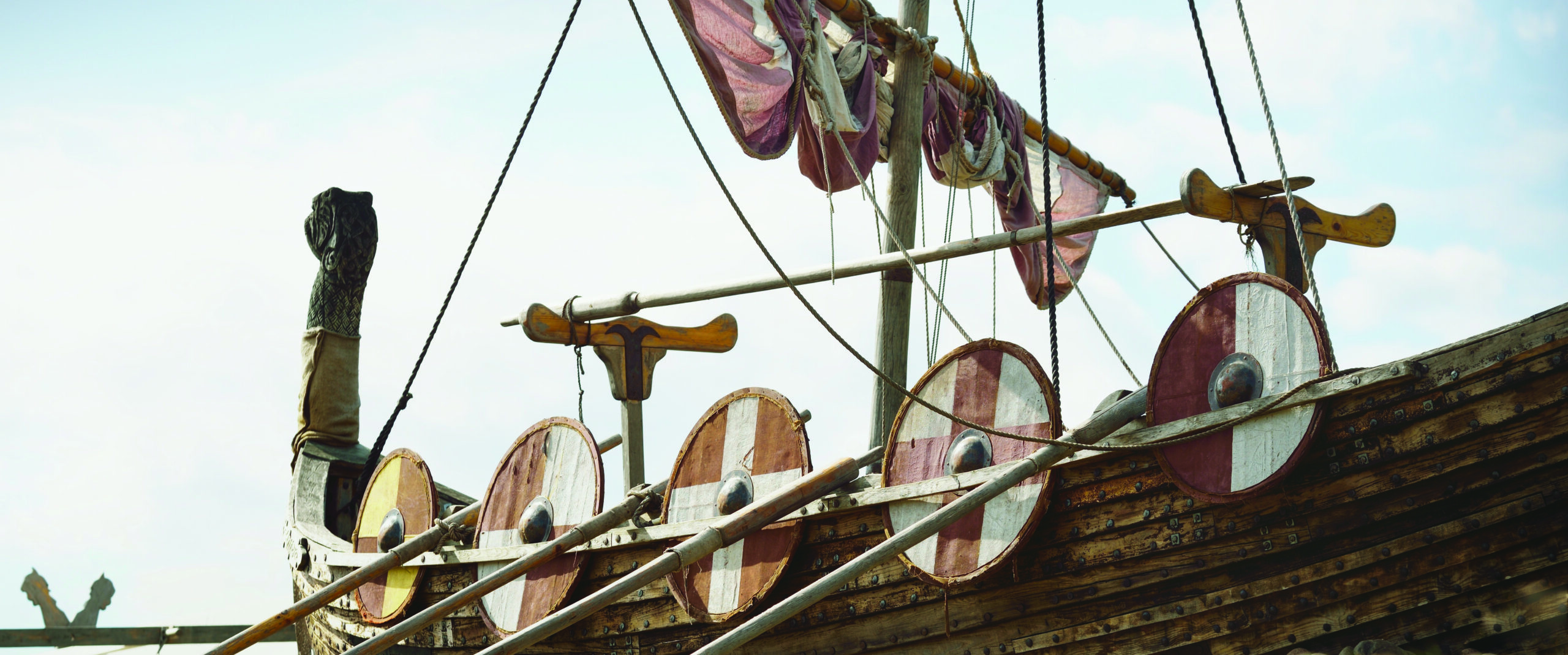
Vikings – An Interview with Alexandra Gurule
WIH is really excited to welcome new instructor Alex Gurule, who is ready to dive into Viking history with us. In anticipation of her upcoming class, several of her students had questions for her. Alex had much to say and is ready to share more in class!
Shea: I’m a bit obsessed with all the Viking dramas that have been created over the past years. Do you have a personal connection to Viking history or is it just a subject that captured you?
Alex: I have an adopted brother who is Scandinavian and named Erik, and my mother’s side of the family is Scottish/Scandinavian. But my obsession with Viking history started as an art history project I did in my first year of undergrad where I studied their ships, and quickly morphed into a full incurable obsession that thankfully has led to my thesis and this class!
Heidi: I find it interesting that the Vikings are known for their brutality and savagery yet Scandinavians of today are some of the most humane, generous, and calm people in the world. How would you explain that?
Alex: That is a really interesting question. Vikings are generally associated with brutality and savagery because at the time this history was being written their invasion of Europe and the UK was seen as a targeted attack on Christianity. It would be centuries later before scholars (almost) could agree that religious persecution played a very small role in their conquests, at least in the early stages. However, that is not to say they weren’t capable of extreme brutality. But no different than the Anglo-Saxons, Goths, Romans, or any other great conqueror of history. Hollywood has increased the notions of blood thirsty heathens because battle is sexy to Hollywood and it sells, and they had very affective fighting tactics.
Dexter: It has been said that Norse explorer Leif Erikson discovered North America (Canada) around 500 years before Columbus reached the Bahamas. Is this something that scholars agree on now?
Alex: For the most part, many agree that Leif and his men were the first explorers to make their way to Canada, more specifically to what is now Newfoundland in 1021 AD. Scientists and historians using new technology to date and analyze tree rings, gave proof that Columbus was not the settler of the “New World.” But like everything in academia, we will never be in full agreement.
Donna: Do you plan to discuss how the Vikings got to Kyiv and settled there?
Alex: I am not planning on discuss Kyiv in particular, however we will be talking about inland water travel (which is what they used to get through Ukraine and Russia) when talking about other areas they traveled and invaded during the great raids. This is an interesting topic to bring up when we have our group discussions though! I will make sure to reference this when we get to that section of our class.
Heidi: Do you know how to research ancestry in Scandinavia? It would seem difficult since so many Norwegians changed their names to the names of their farms. That is the story of my Dad’s surname.
Alex: Yes, this has been something that genetic and family historians have been struggling with. Especially in an age where written records were not prioritized for people outside of high nobility. However, there have been major improvements in genetic testing. Archaeologist are trying to combine a database of DNA from the remains that have been found and compare it to people living to see if familial lines can be established and map geographic regions those clans/families are in.
I loved these questions!! I hope everyone else is as excited for the start of this class as I am. Based on these questions we are going to have some interesting in-class discussions.
-Alex
Join Alex for Vikings!
Wednesdays, 4 weeks, March 22 – April 12 | 10:00 AM – Noon | $130